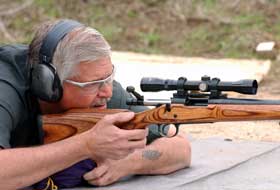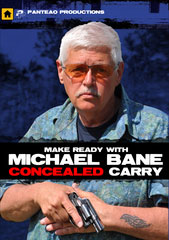"Bellesiles, who is highly knowledgeable about weapons and military history, never comes out against guns. He is more interested in discovering the truth than in taking sides. Nevertheless, his work shatters some time-honored myths and icons--including the usual reading of the Second Amendment--and will be hard to refute. This fascinating, eye-opening account is sure to both inform and inflame the already highly charged debate about guns in America" — Amazon review
Well, of course the punch line is that Bellesiles book was a fraud, made up out of whole cloth. He lost his job as a Professor of History at Emory University, hasd to return the "prestigious" Bancroft Prize he won for his book and, in general, sank back into the muck from which he emerged.
There was, however, a Great Silence from the people who wholesale supported Bellesiles and his work of fiction, most notably Wills, himself a respected historian at Northwestern University. This analysis from Professor Gary Mauser the Toronto Free Press:
"In Bellesiles' case, historians eagerly allowed themselves to be hoodwinked. The charitable interpretation is that academics, like anyone else, are not as critical of arguments that support their prejudices as they are with those that are less comforting. This is just human nature. But, academics are supposed to be professionals. Every discipline has set up methodological standards to guard against such human failings. In order to be published, academic books and articles must survive rigorous criticism in the peer-review process. If we do not honorably adhere to the highest disciplinary standards, our research loses credibility.Anyway, Volkh reports that after all this time (the book came out in 2000), Wills finally admited on CSPAN2 that he had been "conned:"
A less charitable interpretation is that academics are more cynical. Historians may have willingly supported Bellesiles’ outrageous claims, even knowing they were implausible, because doing so furthered their political objectives. Historians tend to consider themselves "progressive," and so they share a dislike of firearms. Thus, they willingly flocked to support Bellesiles in order to promote their ideological agenda."
During the CSPAN2 interview, the first part of Wills's statement to me was mentioned to him and he was asked for a comment. Wills responded that "a lot us" were taken. He pointed to other historians and the Bancroft Prize committee. Wills said that Bellesiles was very convincing, but he took it a step too far; Bellesiles claimed to have consulted archives that he didn't. I don't recall Wills's wording, but he said in effect that there was a lot of good work in the book and the problematic work could have been left out. Then Wills said this (an exact or almost exact quote): "People get taken by very good con men." Of course, this is stronger language than the sort I try to use about Bellesiles myself.Of course, this overlooks a critical media point, why the New York Times Book Review would hire a virulent anti-gun intellectual to review a virulently anti-gun book (you can read the review here)...oh my god! Do you think the New York Times has bias issues?






No comments:
Post a Comment